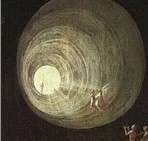Adaptive value of near-death experiences
 Students of neurotheology study near-death experiences because NDE’s (a word coined by Raymond Moody) are a kind of religious experience—not in the sense that they constitute any kind of “proof” of an “afterlife”, but in the way that they may share neurophysiological and neuropsychological aspects with religious experience. Notably, they also give rise to similar effects in the experiencer: becoming less materialistic, more compassionate, and less fearful of death.
Students of neurotheology study near-death experiences because NDE’s (a word coined by Raymond Moody) are a kind of religious experience—not in the sense that they constitute any kind of “proof” of an “afterlife”, but in the way that they may share neurophysiological and neuropsychological aspects with religious experience. Notably, they also give rise to similar effects in the experiencer: becoming less materialistic, more compassionate, and less fearful of death.
In addition to saying that NDE’s are a type of religious experience, we could also say that religious experiences are a type of NDE.
Why do humans have NDE’s? Newberg & d’Aquili put forward the surprising hypothesis that NDEs are evolutionarily adaptive, increasing survivability through such mechanisms as letting the dying organism think more lucidly and flexibly in order to save itself from death, or to pass away more calmly in the interests of avoiding societal stress. They also make the intriguing assertion that animals may have low-level NDEs. This is something that should be possible to verify experimentally, at the cost of a few dead rats. Experimental designs, anyone?
NDE’s represent a potentially fruitful source of neurotheological insights, because we can study and measure them in ways not possible for other types of religious experience. For instance, children do not have NDE’s until around the age of ten—what aspect of neurodevelopment could account for that?
Many thoughtful people may have placed NDE’s in the same category as alien abductions or crop circles. That would be a mistake. NDE’s are neurotheological events eminently worthy of our attention.

November 9th, 2009 at 10:15
A google video search for Todd Murphy will yield some videos in which he lectures on his ideas about a possible Darwinian role of NDE’s, which you may find interesting if a little lengthy.
Cool blog you have made here 🙂